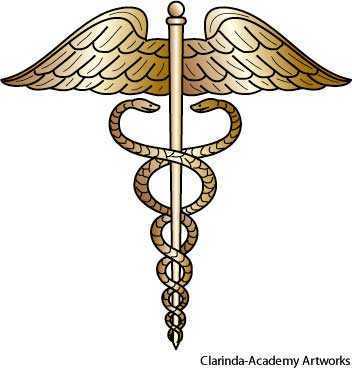Editorial: A Moral Case Against Universal Healthcare

The issue of healthcare has become an especially common topic in political discourse, largely as a result of calls for universality from Democratic leaders. The overwhelming consensus continues to head towards discerning healthcare as a right, fixating no attention to potential external factors and sensible objection to such policy.
What seems to generate continuous fuel for universal healthcare, however, is the insistence that it exists as a fundamental right; every human is born with innate capacity to acquire healthcare services.
Therefore, while many criticisms can be placed disfavoring legislation granting these perceived immunities – funding discrepancies, lowering rates of quality, radically escalating deficits – the main contention here will disregard these unavoidable consequences and focus primarily on the moral dilemma.
To begin, the Declaration of Independence explicitly states the unalienable rights of life, liberty, and the pursuit of happiness; among these, of course, is life. Here, without contextualization and thus, a proper interpretation, misconstrued narratives are built off of sheer conjecture.
In elaboration, the Constitution establishes the role of government in respect to these rights. Among these guidelines are to promote the general welfare of the people and to secure the blessings of liberty to the people.
Simply put, the government has an obligation to bolster those in need – but not to entirely eradicate misfortune. In this sense, programs such as Medicare and Medicaid have some logical basis for their existence. However, to extend these benefits to those who presumably don’t require it, and in effect, then insist others pay for it – is not only an overreach in the promotion of welfare, but a violation of the Constitution’s purpose to secure liberty.
Unfortunately, the constant urge for universality is manufactured from more than just one fallacious premise.
The most foundational and inherent presupposition is that the government actively provides and enforces the ends of a right over the means. Simply stating, “healthcare is a right” may not outright expose this sentiment – likely because the emotional allure is just enough to manifest itself before one realizes the incompatible conclusion.
And this isn’t purely theoretical; once an individual links governmental duties as terminal rather than initial, all sorts of claims can be made supporting a delusional notion of entitlement.
Take, for example, if the government secured the ends of life over the means. In addition to universal healthcare, forcibly implemented legislation would provide universal food, housing, clothing, and a variety of other necessities in order to sustain a healthy society.
That’s only the beginning: under this logic, not only does the government have a vested interest in guaranteeing a healthy society, but they also have a larger, and quite frankly, much more difficult task in eliminating unhealthy and risky behavior. The resulting legislation would be endless, and by definition, an infringement on freedom.
But the basis behind these subsidies and restrictions would be performed on a much broader scale than just in terms of life. Simply for sampling purposes, rights such as the 1st and 2nd Amendment would consequentially result in the government actively providing funds for a citizen to express their opinions and bear arms.
In other words, if you desired to start a podcast, the government would be obligated to secure you with funding because otherwise, your free speech rights would be violated. And in the case of the 2nd Amendment, the government would be similarly obligated to supply the population with weapons.
Even the most ardent supporters of universal healthcare would agree that this is patently absurd.
The rational and correct way to interpret the Constitution would only conclude with the government’s duties expressed as means. Instead of the government funding an individual’s podcast, they should provide that individual with the freedom to do so on their own. Instead of granting every American with a firearm, the government should permit for individuals to freely purchase at will.
Rebounding back to the original premise, healthcare should also follow the same guidelines. By providing citizens with the ability to choose between insurance plans in a competitive, free-market, individuals are granted the means by which they have the right to live.
Even if, hypothetically, the dystopian vision of securing life at the ends held any credibility, it would still create a multitude of moral troubles.
In a capitalistic system, people begin to gain greater access to healthcare services because the market naturally decides fluctuations between supply and demand. On the contrary, a universal healthcare plan would have, evidently, the highest levels of demand alongside otherwise normal levels of supply. Subsequently, dramatic price hikes would cause the government to begin increasing taxes and introducing new regulatory legislation in order to stabilize costs.
Not only would this mean an exponential increase in expenditure, but it would also mean that the government would routinely deny individuals coverage based on the cost of their services. Just last year, the UK announced it would deny care to smokers and the obese, under the exception that they lose weight or quit smoking. Abuses of the system have also lead to fraudulent claims of conditions, creating even further rationing which continually dries up availability.
This ties up into one simple conclusion: the push for universality contradicts the Constitution, accepts a philosophical presumption while disregarding proceeding ramifications, and fails to deliver its main goal in and of itself.
As demonstrated earlier, these flaws ultimately conclude in moral obscenities. Thus, while it may certainly sound humanitarian at face value to promote the implementation of healthcare for every American through a single-payer system, this couldn’t be further from the truth.

